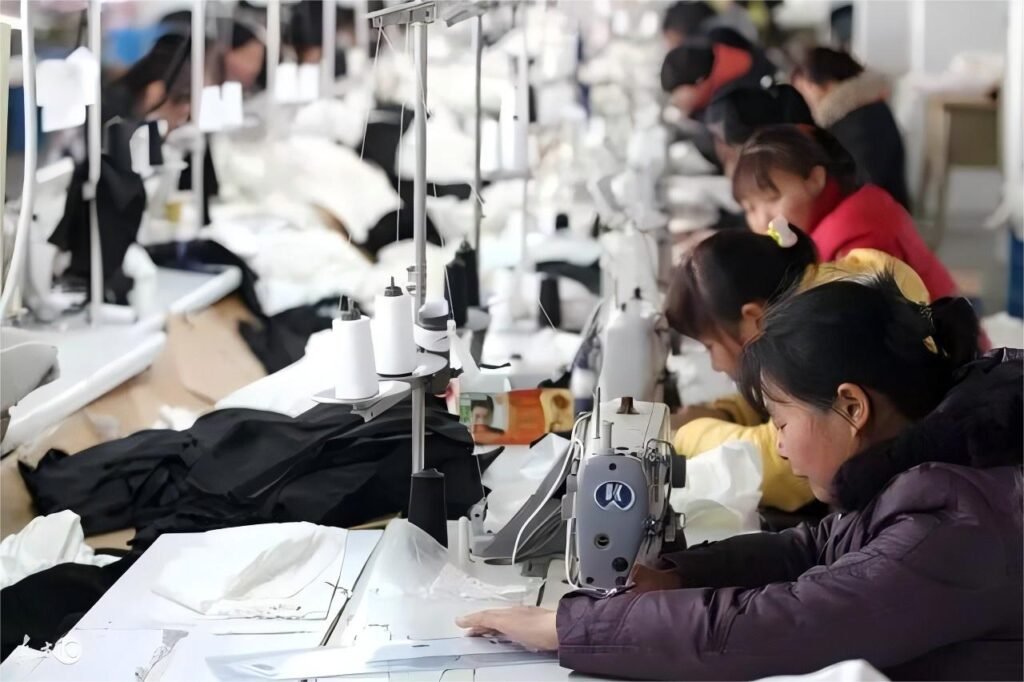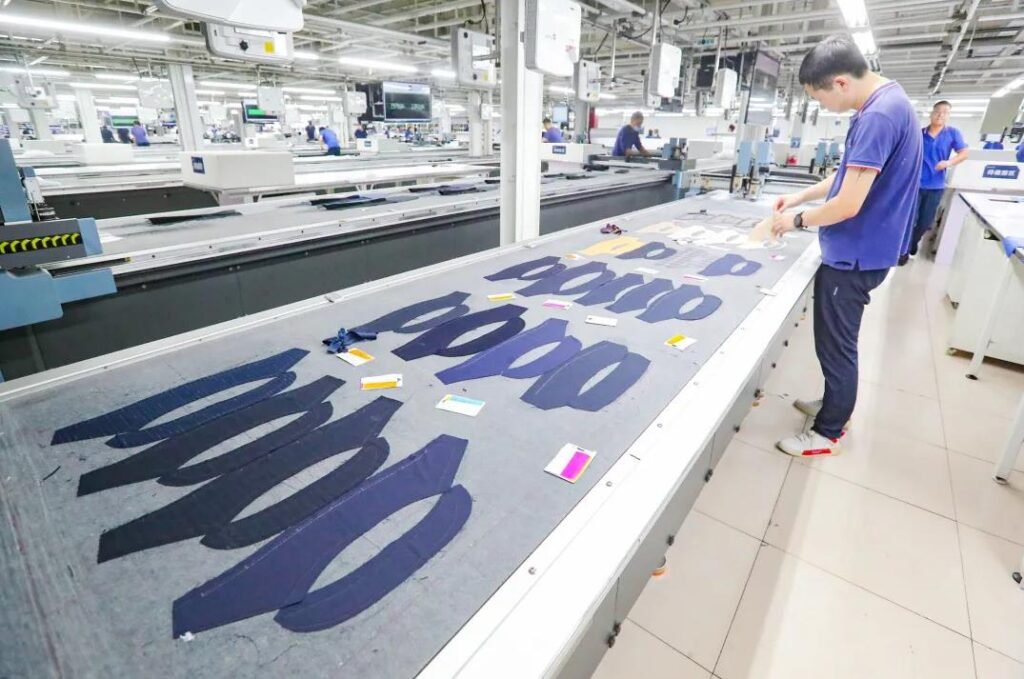No products in the cart.
Custom Yoga Pants
Boutique Clothing Suppliers: Unique, Trendy Fashion for Upscale Boutiques
Introduction to Boutique Clothing Suppliers: Unique, Trendy Fashion for Upscale Boutiques
In the ever-evolving world of fashion, boutique clothing suppliers have emerged as key players, offering unique and trendy fashion for upscale boutiques. These suppliers cater to the growing demand for exclusive and high-quality clothing, providing boutique owners with a curated selection of garments that set them apart from mainstream retailers. This article will delve into the rise of boutique clothing suppliers in the fashion industry, explore the benefits of partnering with them, and shed light on the strategies they employ to stay ahead of fashion trends.

The Rise of Boutique Clothing Suppliers in the Fashion Industry
Over the past decade, boutique clothing suppliers have witnessed a significant rise in popularity. This can be attributed to the increasing consumer desire for individuality and the demand for unique fashion pieces. As consumers become more conscious of their personal style and seek to express their individuality, they are turning to boutique stores that offer a carefully curated selection of clothing.
Boutique clothing suppliers have capitalized on this trend by sourcing garments from independent designers and small-scale manufacturers. By focusing on niche markets and offering limited quantities of each item, these suppliers create a sense of exclusivity that appeals to boutique owners and their discerning clientele.
Exploring the Benefits of Partnering with Boutique Clothing Suppliers
Partnering with boutique clothing suppliers offers numerous benefits for boutique owners. Firstly, it allows them to differentiate themselves from larger retailers by offering a unique selection of clothing that cannot be found elsewhere. This exclusivity attracts customers who are seeking something different and are willing to pay a premium for it.
Secondly, boutique clothing suppliers often provide personalized service and support to their clients. They understand the needs and preferences of boutique owners and work closely with them to curate collections that align with their brand identity. This collaborative approach ensures that boutique owners receive a tailored selection of garments that resonate with their target audience.
Furthermore, partnering with boutique clothing suppliers can help boutique owners streamline their inventory management. These suppliers often have a deep understanding of market trends and can provide valuable insights on which items are likely to sell well. By leveraging this expertise, boutique owners can optimize their inventory and minimize the risk of overstocking or understocking.
How Boutique Clothing Suppliers Stay Ahead of Fashion Trends
Staying ahead of fashion trends is crucial for boutique clothing suppliers to remain relevant in the industry. These suppliers employ various strategies to ensure they are always one step ahead. One such strategy is attending fashion trade shows and industry events. These events provide a platform for suppliers to discover emerging designers, connect with manufacturers, and gain insights into upcoming trends.
Additionally, boutique clothing suppliers maintain close relationships with independent designers. By collaborating with these designers, suppliers can tap into their creative vision and gain access to unique and innovative designs. This partnership allows both parties to benefit, as designers gain exposure and recognition, while suppliers secure exclusive access to their collections.

Unveiling the Process of Curating Unique Collections for Boutiques
Curating unique collections for boutiques is an art form that boutique clothing suppliers have mastered. The process begins with thorough market research and trend analysis. Suppliers study consumer preferences, monitor fashion influencers, and analyze sales data to identify emerging trends and popular styles.
Once the trends are identified, boutique clothing suppliers collaborate with independent designers to create collections that align with these trends. This involves selecting fabrics, colors, and silhouettes that are in line with the current fashion landscape. Suppliers also consider the target audience of the boutique and ensure that the collection resonates with their preferences.
The Art of Sourcing High-Quality Materials for Boutique Clothing
One of the distinguishing factors of boutique clothing is the use of high-quality materials. Boutique clothing suppliers understand the importance of sourcing materials that not only look good but also feel luxurious. They prioritize quality over quantity and are willing to invest in premium fabrics that enhance the overall appeal of the garments.
To source high-quality materials, boutique clothing suppliers often work directly with manufacturers and fabric mills. This allows them to have greater control over the production process and ensures that the materials used meet their stringent quality standards. By maintaining close relationships with suppliers, boutique clothing suppliers can also stay updated on the latest advancements in fabric technology and incorporate them into their collections.
Collaborating with Independent Designers: A Key Strategy for Boutique Clothing Suppliers
Collaborating with independent designers is a key strategy employed by boutique clothing suppliers to offer unique and exclusive fashion. Independent designers bring a fresh perspective to the industry and often have a strong focus on craftsmanship and attention to detail. By partnering with these designers, boutique clothing suppliers can tap into their creativity and offer their clients a selection of garments that cannot be found elsewhere.
These collaborations also provide a platform for emerging designers to showcase their talent and gain exposure. Boutique clothing suppliers act as a bridge between these designers and boutique owners, facilitating the introduction of new and exciting brands to the market.
The Importance of Ethical and Sustainable Practices in Boutique Fashion
In recent years, there has been a growing emphasis on ethical and sustainable practices in the fashion industry. Consumers are becoming more conscious of the environmental and social impact of their purchasing decisions and are actively seeking out brands that align with their values.
Boutique clothing suppliers recognize the importance of ethical and sustainable practices and strive to incorporate them into their operations. They prioritize working with manufacturers and designers who adhere to fair labor practices and use environmentally friendly production methods. By offering ethically made and sustainable fashion, boutique clothing suppliers cater to the increasing demand for conscious consumerism and attract customers who value transparency and accountability.
Navigating the Challenges of Inventory Management for Boutique Clothing Suppliers
Inventory management is a critical aspect of running a successful boutique clothing business. Boutique clothing suppliers face unique challenges in this area, as they often deal with limited quantities of each item and need to carefully balance supply and demand.
To navigate these challenges, boutique clothing suppliers employ various strategies. They closely monitor sales data and analyze customer preferences to identify which items are selling well and which are not. This allows them to make informed decisions about restocking and replenishing inventory.
Furthermore, boutique clothing suppliers often adopt a just-in-time inventory management approach. This means that they only order new stock when there is demand for it, minimizing the risk of overstocking and reducing storage costs. By closely managing their inventory, boutique clothing suppliers can ensure that they have the right products available at the right time, maximizing sales and minimizing waste.
Marketing Strategies for Boutique Clothing Suppliers: Reaching the Right Audience
Effective marketing is crucial for boutique clothing suppliers to reach their target audience and generate sales. These suppliers employ various marketing strategies to create awareness and build brand loyalty.
One strategy is to leverage social media platforms to showcase their collections and engage with customers. By creating visually appealing content and collaborating with influencers, boutique clothing suppliers can reach a wider audience and generate buzz around their brand.
Another effective marketing strategy is to participate in fashion events and collaborate with other industry players. By showcasing their collections at fashion shows or partnering with influential bloggers, boutique clothing suppliers can gain exposure and attract the attention of potential customers.
Building Strong Relationships with Boutique Owners: The Key to Success
Building strong relationships with boutique owners is crucial for the success of boutique clothing suppliers. These suppliers understand that boutique owners are their primary customers and work hard to provide them with exceptional service and support.
Boutique clothing suppliers prioritize open and transparent communication with boutique owners. They take the time to understand the unique needs and preferences of each boutique and tailor their offerings accordingly. By building a strong rapport with boutique owners, suppliers can establish long-term partnerships that are mutually beneficial.

The Future of Boutique Clothing Suppliers: Innovations and Trends to Watch Out For
The future of boutique clothing suppliers looks promising, with several innovations and trends on the horizon. One such trend is the rise of sustainable fashion. As consumers become more conscious of their environmental impact, there is a growing demand for clothing that is made ethically and sustainably. Boutique clothing suppliers that embrace this trend and offer eco-friendly fashion will likely thrive in the coming years.
Another trend to watch out for is the integration of technology into the boutique clothing industry. Virtual reality and augmented reality are already being used to enhance the shopping experience, allowing customers to try on clothes virtually and visualize how they would look before making a purchase. Boutique clothing suppliers that embrace these technologies and offer a seamless online shopping experience will have a competitive edge in the market.
In conclusion, boutique clothing suppliers play a vital role in the fashion industry, offering unique and trendy fashion for upscale boutiques. By partnering with these suppliers, boutique owners can differentiate themselves from larger retailers and offer their customers a curated selection of garments that cannot be found elsewhere. Boutique clothing suppliers stay ahead of fashion trends by attending trade shows, collaborating with independent designers, and conducting thorough market research. They prioritize ethical and sustainable practices, navigate the challenges of inventory management, and employ effective marketing strategies to reach their target audience. By building strong relationships with boutique owners and embracing innovations and trends, boutique clothing suppliers are well-positioned for a successful future in the industry.
